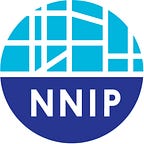Reflections on Responsive Grantmaking in the Wake of the Pandemic
by Jake Cowan
A publication of the Local Data for Equitable Recovery Resource Hub
Last summer, the Robert Wood Johnson Foundation and the Annie E. Casey Foundation each created a rapid-response grantmaking program to help nonprofits across the US use local data to support equitable COVID-19 response and recovery. The Urban Institute managed the grant initiatives for these funders and provided technical assistance and support to the grantees. With the grantee projects complete, my colleagues and I reflected on lessons from the experience so local and national philanthropies can consider how to structure similar programs, not only in reaction to a crisis but also to be responsive to community needs at all times.
Grantees created valuable insights for their communities.
From identifying challenges in implementing assistance for tenants facing eviction in Dallas to assessing COVID-19’s effects on child care services in Cleveland, grantee teams of researchers and community-based organizations created actionable knowledge and recommendations on urgent questions for local policymakers, philanthropic partners, and service providers. Their projects spanned subjects and policy areas that included affordable housing, evictions, food security, child care services, and equitable transit-oriented development.
Local partnerships created through these grants built community-wide data capacity.
Grantee teams collaborated in new ways, with resident-led research driving projects. Grantees also engaged young people in research tasks and, through their community engagement strategies, ensured the research and data they produced would align with what communities wanted. They deepened and strengthened their partnerships, with some making plans and seeking funding to continue working together.
And though grantees were locally focused, the subjects and policy areas they worked on are part of ongoing federal COVID-19 response and recovery initiatives. Going forward, grantees can inform how their communities use federal funds toward local pandemic response and recovery, and they have new capacities and connections that will prepare them for emerging challenges and crises.
Grantees sought and used expertise from the Urban Institute, especially the National Neighborhood Indicators Partnership (NNIP).
The Urban team members who managed these grant initiatives, most of whom are part of the NNIP team, regularly communicated with grantees and supported them by reviewing data collection plans and protocols, identifying potential data sources, and talking through plans and strategies. Content from NNIP’s library of guides, tools, and methodologies were shared with grantees to accelerate their learning and allow them to benefit from the experience and practice of NNIP’s network of more than 30 partner organizations from across the US.
Additionally, Urban Institute subject matter experts consulted with grantees, including experts in data science, housing, transit-oriented development, and food security. These consultations helped grantees bring new knowledge and expertise to the implementation of their grant projects.
Grantees collaborated and learned from each other.
Throughout the grant period, virtual meetings were scheduled with time for grantees to present to their peers and to discuss their projects in breakout rooms. Although these meetings were optional, only a few grantees opted out. During these meetings, grantees discussed project strategies, sought advice and feedback from their peers, and, in some cases, continued their conversation outside of the meeting time.
The connections grantees made with one another provided a way for them to connect, listen, and learn from each other. Grantees had to adapt how they engage with their communities and how they collect data, such as through surveys and focus groups. They leaned on one another to navigate new challenges.
In addition, the lessons from these grantee projects are being disseminated through the NNIP network, which will continue sharing knowledge to new audiences.
The lightweight design of these grant initiatives kept the focus on the grantees’ local work.
The Robert Wood Johnson Foundation grantees were not asked for narrative reports and only had to submit one final financial report with one line for total amount spent. And though most grantees finished during the six-month grant period, several needed more time. In these cases, no-cost extensions were granted via a simple email request. With little to track administratively, grantees focused on their projects, and the Urban team was able to focus on connecting them with supportive tools and expertise.
Investing in a national network of projects creates valuable opportunities for connection and building knowledge on data-to-action initiatives — and there is a need for similar ongoing investments.
There is unmet demand for flexible funding to support data-to-action initiatives. More than 20 unfunded grant applications are just one measure of the greater interest in community participation in initiatives like these. These initiatives built examples of practice, local infrastructure, and tools and resources for responding to crises. The need for communities to respond to crises is not going away, and philanthropy and government must continue funding opportunities for communities seeking to build their capacity to use data in creating the equitable future they envision.
